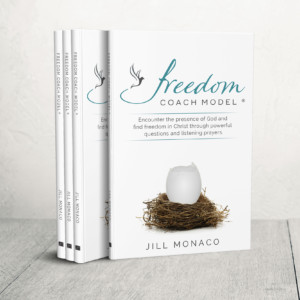I hate to admit that I have a lot of experience healing from church hurt.
Someone asked me how I’ve learned to love well. My response came without thinking …
“Because I’ve had to forgive a lot.”
Have you been hurt by someone in the Church? Maybe it was a leader, a pastor, or another believer. Maybe someone lied about you, stole from you, betrayed you, shamed you, ridiculed you …
I get it.
A married pastor was inappropriate with me. My pastor’s daughter plagiarized a message I wrote and preached it at a large women’s conference a few months later. A famous Christian comedian and speaker hired me to do some work and then refused to return my calls and pay me the $2,000 he owed me. Someone that I admired got a letter from my attorney to stop using my trademark; he used some gaslighting techniques to intimidate and shame me. A pastor at a church asked me if I was being a cougar with a younger man I was friends with. An elder pulled out my shirt and looked down the back (without my permission). A married man and leader at church used an opportunity for a hug to kiss my neck and touch my behind. I was molested at church as a child.
Yeah, I get it.
Our decision to hurt or heal
I could write a whole post on each lesson God taught me through each one of those experiences. In fact, it feels very vulnerable to even share them because most of them I’ve never shared outside of my closest circle.
But the last few weeks I’ve sensed God asking me to share … because with vulnerability comes healing. Not just for those who read it but for me too.
I’ve always operated from the idea that it’s good for me not to share those experiences with the world because I want to honor those people – who God also loves very much – and I could trust God to work all things together for good. Which is all still very true. There is wisdom in leaving things in the hand of God. Because none of us are without sin.
I later learned that I also wasn’t sharing them because of shame. I was afraid if I told people they’d wonder what was wrong with me or wonder what my part in it was. Sometimes there aren’t two sides to a story and the truth is just plain ugly. But when you’re healing you don’t want to take on one more challenge – especially the one of explaining yourself.
I believe there is a whole other post I could write that would be about why some people have repeated injustices. I’ll save that for another day. But I want to make two important points before I continue: 1) None of us are without failures so we must be careful to cast the first stone. 2) Everyone is loved by God … no matter what they’ve done.
I want to share the most important thing I learned through these church hurts.
We get to choose how we respond to the things done to us and by that choice, decide who we will be.
- Someone who hurts. Everyone who does something hurtful is hurting themselves. Will you hurt others out of your pain?
- Someone who heals: Everyone who ministers healing to people has allowed God to heal them. Will you let God use what happened to you for good?
Which kind of person would I be?
Would I hold on to unforgiveness until it became bitterness and become someone who hurt others? Or would I be a minister of reconciliation and share in the sufferings of Christ? If we choose the latter we are also promised to share in His glory and have abundant comfort.
Now if we are children, then we are heirs—heirs of God and co-heirs with Christ, if indeed we share in his sufferings in order that we may also share in his glory. Romans 8:17
For just as we share abundantly in the sufferings of Christ, so also our comfort abounds through Christ. 2 Cor 1:5
What if we remember that one of the greatest gifts we were ever given was forgiveness and that through it we follow in the footsteps of Jesus by crying out, “Forgive them, Father, for they know not what they do.” (Luke 23:34)
What if sharing in the sufferings of Christ was a gift?
Blessed are those who are persecuted for righteousness’ sake, for theirs is the kingdom of heaven. Matthew 5:10
When love challenges you
Forgiveness is rooted in love. And love is the fruit of forgiveness. Forgiveness starts with love and it results in love. We received forgiveness because of LOVE – God Himself who is love came to earth in the form of man (Jesus) to love us. He asked us to love others.
Love the Lord your God with all your heart and with all your soul and with all your mind and with all your strength.’ The second is this: ‘Love your neighbor as yourself.’ There is no commandment greater than these.
We most often learn to love by exercising it in seasons of challenges. It’s in those circumstances where we don’t want to love because it doesn’t come easy. The real test of love is when it can’t be returned. The way to heal from hurt (especially from church hurt) is to allow love to do its greatest work in us at the moment of our greatest pain.
If we changed our perspective and looked at the things that challenge us … the people who hurt us … the situations that were unjust … and looked at it as if LOVE was challenging us instead of people, maybe we’d be more willing to say, ok love, be my teacher, what can I learn from this pain? Better yet, what can I gain from learning to love well?
Love is patient, love is kind. It does not envy, it does not boast, it is not proud. It does not dishonor others, it is not self-seeking, it is not easily angered, it keeps no record of wrongs.Love does not delight in evil but rejoices with the truth.It always protects, always trusts, always hopes, always perseveres.
Three steps to heal from church hurt
1) RECOGNIZE the injustice, pain, rejection, bullying, etc … and validate your emotions by acknowledging it hurt.
I’ve done this step wrong in the past. I wanted to honor God by forgiving people so I didn’t want to stop to acknowledge my pain. I thought not holding something against someone also meant to not bring up what someone did with God. I skipped right to, “God I trust you. I’m sorry I’m angry, please forgive me.” My good intentions were misguided. All I did was stuff my pain. I didn’t give myself permission to cry out to God and grieve the loss I felt. It often came up much later in unhealthy ways.
So we can’t skip this step. We just meet with God and let Him be our comfort. On the other side of the coin, we can’t stay stuck in our pain. We should share our story with a trusted confidant and receive godly counsel who can help us process it and move on to the next steps.
2) RELEASE the gift of forgiveness toward the offender.
When I lead clients through forgiveness I suggest a few things that help release the pain. Just like when we ask for forgiveness and are specific about what we are sorry for, we should be specific about what we are forgiving someone for. You can say, “God, today I choose to forgive ___ for ___. Because when ___ did that it made me feel___. I release and submit all my feelings to You. I forgive them for the consequences I still have in my life because of their actions. I release them from all my expectations and because of the cross, I declare they owe me nothing. I ask that you show them mercy and bless them.”
I find when we can ask God how He sees the person or situation we gain more compassion too. You may be surprised at what He reveals. Sometimes healing comes in stages so if it comes up again, it doesn’t mean you didn’t forgive the first time.
3) RECEIVE restoration from God.
God loves to give us things in exchange for our pain. Is 61:3 says he wants “to comfort all who mourn and provide for those who grieve in Zion—to bestow on them a crown of beauty instead of ashes, the oil of joy instead of mourning, and a garment of praise instead of a spirit of despair.” In verse 4 God promises to rebuild, restore and renew: “They will rebuild the ancient ruins and restore the places long devastated; they will renew the ruined cities that have been devastated for generations.” We can only receive that which we are positioned for … he can only put new things in our hands if they are empty. Only broken things get restored.
If you’ve been hurt by the church I want to say I’m so very sorry that happened to you. I may not be able to fully understand what you lost or had to go through. But God does. He hasn’t overlooked it. He is for you. He longs to pour out his comfort upon you. He invites you to sit with Him and cry, complain, or question if you need to. I pray His love strengthens you so you may reflect His kindness and goodness to others who need to know Him too.
Remember love is inviting you to experience the power of the Gospel. And the way to get healing from church hurt is to let the head of the Church, Jesus, minister to you.
Other helpful blog posts on this theme:
If you are healing from church hurt, you may want to check out my post on 25 signs of spiritual abuse. Or if you are a friend of someone who is going through a #MeToo #ChurchToo experience, you may want to read my post for you, the bystanders. I also wrote about one of my #MeToo #ChurchToo stories. If you attended Harvest Bible Chapel, this post is about the detox process that happens after you leave.
This is an updated edition of a post originally published on jillmonaco.com.
Featured Image by Annie Theby








Comments are closed.